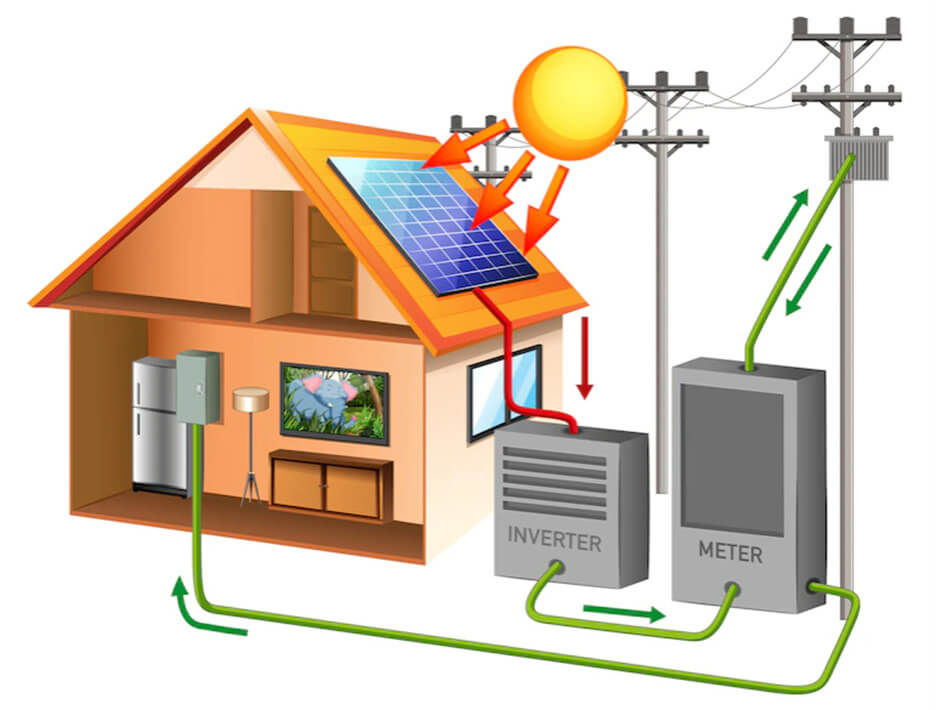Solar Energy – Unlimited Source
Solar energy is a renewable energy source that will never run out as it generates daily from sunlight. Solar energy creates electricity, heat water and air, and even power vehicles. It is a clean and sustainable energy source that can help reduce carbon emissions and fight climate change. Solar energy is becoming increasingly popular and cost-effective and is used in many different applications worldwide.
Advantages and Disadvantages of Solar Energy
I have outlined the Advantages and Disadvantages of Solar Energy in the following points.
Advantages
#1 Low Maintenance Costs
Solar installation systems require very little maintenance to keep producing energy. You don’t have to pay for regular maintenance costs or replacement parts, making solar power a cost-effective energy source.
#2 Renewable Energy Source
Solar energy is a renewable energy source as you can produce it constantly from the sun. As long as the sun is shining, solar energy will remain available.
#3 Eco-Friendly
Solar energy is a clean, renewable energy source that doesn’t produce air or water pollution. It also has no greenhouse gases, making it a great way to reduce your carbon footprint.
#4 Abundant Supply
The sun provides abundant energy necessary to power homes and businesses. You won’t have to worry about running out of fuel anytime soon.
#5 Cost Savings
Solar energy can save you money on your energy bills. Using solar energy can reduce or even eliminate your energy costs, depending on how much energy you use.
#6 Versatile
Solar energy powers various devices, from lights and appliances to hot water systems and air conditioning. It means you can use solar energy to power almost anything in your home.
#7 Increased Property Value
The installation of solar energy systems can increase the value of your property. It makes it an excellent investment for homeowners who want to get the most out of their property.
Disadvantages
#1 High Up-Front Costs
Solar energy systems require a significant up-front investment, which can be prohibitively expensive for some homeowners and businesses. Solar energy can be difficult to afford even with the federal tax credit.
#2 Maintenance and Repair Costs
Solar energy systems require ongoing maintenance and repairs to operate at peak efficiency. It can be an additional cost that some people may need help to afford.
#3 Weather Dependent
Solar energy systems are weather dependent, which means they can be affected by cloud cover, rain, and snow. If the temperature is optimal, the solar energy system will produce less energy than expected.
#4 Limited Storage Capacity
Solar energy systems have limited storage capacity, so any excess energy generated must be sold back to the power grid.
#5 Limited Locations
You can install Solar energy systems in specific locations since they require direct sunlight. It means some homeowners and businesses need help to take advantage of solar energy.
#6 Potential Damage to the Environment
Solar energy systems can only harm the environment if correctly installed and maintained.
SECI
The SECI is abbreviated as Solar Energy Corporation of India Limited. SECI is a government company established by the Ministry of New and Renewable Energy. The main aim of the company is to implement the National Solar Mission to develop the solar sector. SECI generates solar power and sells it. Numerous government schemes are undertaken under NSM, like the VGF schemes dedicated to large-scale grid-connected projects, grid-connected solar rooftop schemes, defense schemes, Indo-Pak border schemes, solar park schemes, and solar canals.
Final Thoughts
Advantages and Disadvantages of Solar Energy include being renewable, cost-effective, and environmentally friendly. However, there are also some disadvantages, such as its dependence on weather conditions and the initial cost of installation. Ultimately, it is up to the individual to decide if the advantages of solar energy outweigh the disadvantages.

